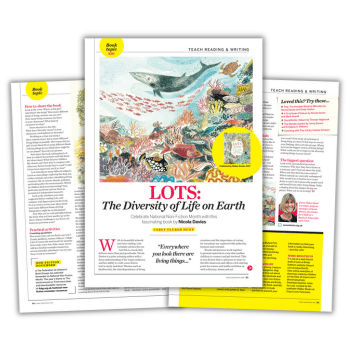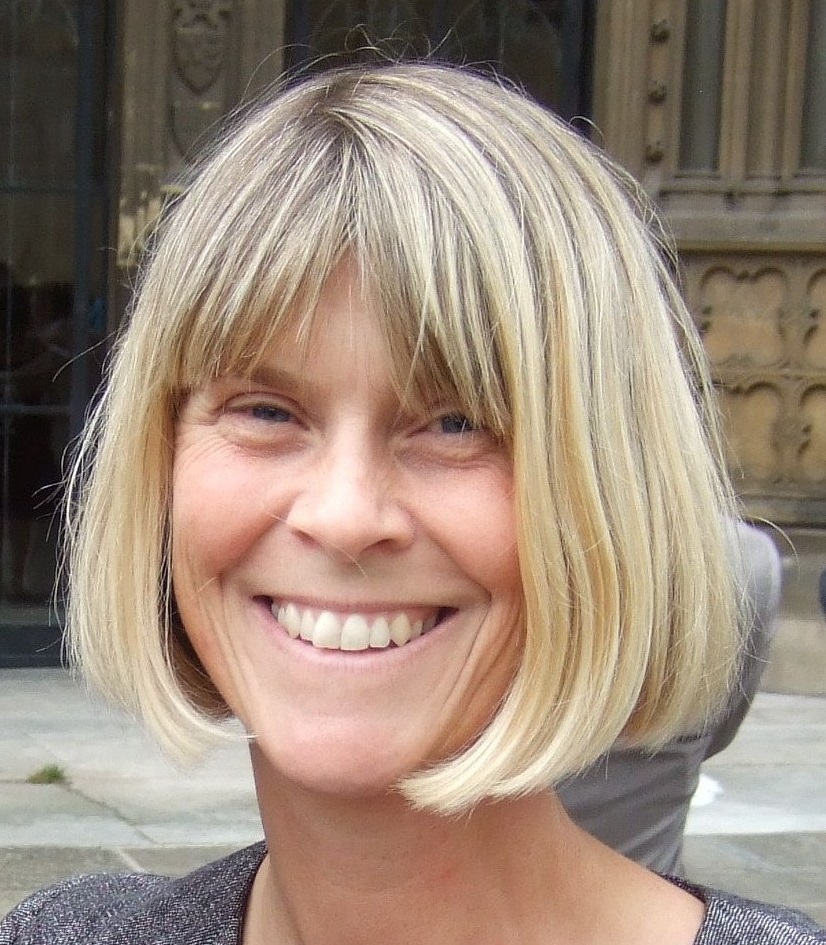With its beautiful artwork and retro styling, Lots by Nicola Davies certainly catches the eye – but this is a book that delivers more than just good looks.
Nicola Davies is a prize-winning author with a deep understanding of her target audience, and her ability to craft a non-fiction text is rarely matched.
Themes such as biodiversity, the interdependence of living creatures and the importance of caring for our planet are explored with authority, humour and restraint.
Words and pictures work together to present material in a way that enables children to connect and get involved.
This is non-fiction that’s a pleasure to share in the KS1 classroom and offers a rich starting point for science and maths activities, as well as literacy, drama and art.
Starter activity
Look at the cover of Lots by Nicola Davies. Where is this girl? And what’s she doing? How many different kinds of living creature can you see?
How many living creatures are there in your classroom? What kind of creatures are they?
Draw attention to the title. What does ‘diversity’ mean? Is your classroom a rich habitat for diversity?
Working as a class and using a three-minute timer, list as many different living things as possible. How many did you get? Count them! How many different kinds of living things do you think there might be on our planet? Record your guesses.
Sharing the book
Now share Lots by Nicola Davies, taking plenty of time to explore the pictures and talk about the ideas raised. What did your children like about Lots? How does it compare with other non-fiction books they’ve read? Could it have been improved, and if so, how?
Lots introduces many different subjects (such as camouflage, exploring the deep sea, extinct animals, microbes, identifying living creatures, life on remote islands, pollution and looking after the environment).
Which do children find most interesting? Note particular questions and use them as prompts for independent research.
Look at the numbers your class suggested before reading Lots, and compare with figures given in the book. Do you need to revise your ideas about how many different kinds of living things there might be on this planet?
Now that you’ve read and talked about the book, why not have another go at the three-minute challenge to see if you can beat your previous score?
Carey Fluker Hunt is creative projects manager at Seven Stories, the Centre for Children’s Books in Newcastle upon Tyne. This resource is perfect for Non Fiction November. We have recommendations for more than 20 excellent KS1 books, with planning.














